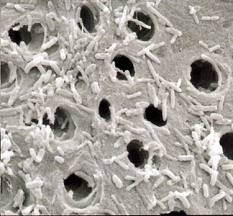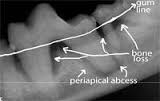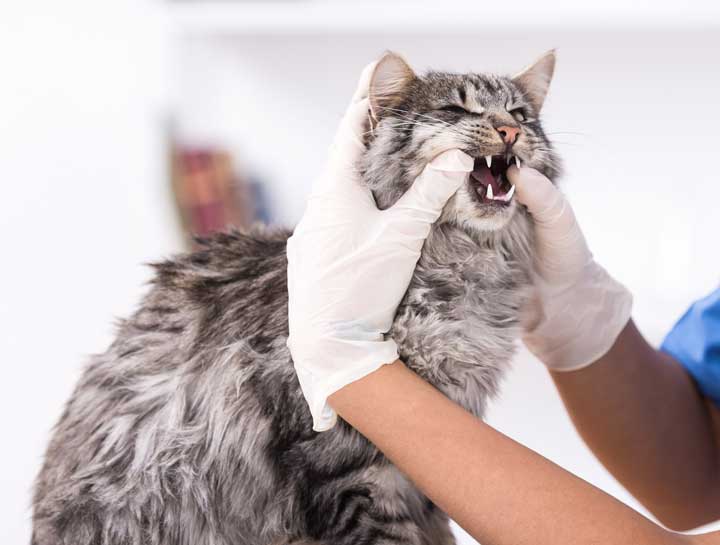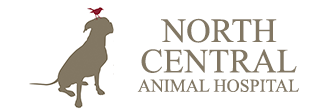Preventive Dental Care
Routine dental care matters.
Does your pet have Kissable Breath?
Not only does a healthy mouth smell better, but it improves overall health as well. Heavy oral bacteria can pass throughout the body, causing build-up on heart valves and clogging the kidneys & liver. Irritated gums are also painful and can lead to reluctance to chew hard food, reluctance to play with toys, and overall change in demeanor.
We are also able to address any routine and most advanced dental problems including dental x-rays, extractions closed with sutures, gum tumor removal or other surgical flaps, tooth restoration for enamel damage, vital pulpotomies, and orthodontics. We have the specialized equipment and supplies on hand for most problems encountered.
Research-proven products to help keep your pet's oral health optimal and reduce plaque and tartar buildup are also conveniently available. These include ultra-soft specially shaped toothbrushes for cats and dogs, flavored enzyme toothpaste like vanilla mint for a daily fresh breath boost, water additives for convenient treatment that works all day, diets that act as "edible toothbrushes", and several chew treats. Visit www.VOHC.org.
Is a chipped tooth serious?
Enamel is like the candy coating on a peanut M&M. Once the protective "shell" is damaged, the underlying "chocolate layer" dentin is exposed which contains millions of microscopic holes that connect to the central root canal "peanut" where the sensitive nerve endings and blood supply connected to the rest of the body lives. These sensitive teeth affect the quality of life on a daily basis and can put their entire body at risk for infection. The bacteria easily travel through the holes in the exposed dentin like a highway directly into the blood supply. Damage to heart valves, kidneys, and liver infections are the most common site affected by these circulating mouth bacteria. When the tooth root canal becomes infected, an abscess can start to form in the surrounding bone by the tip of the root deep within the jaw or facial bone. A tooth that appears fairly normal can have severe disease simmering below the surface.
millions of microscopic holes that connect to the central root canal "peanut" where the sensitive nerve endings and blood supply connected to the rest of the body lives. These sensitive teeth affect the quality of life on a daily basis and can put their entire body at risk for infection. The bacteria easily travel through the holes in the exposed dentin like a highway directly into the blood supply. Damage to heart valves, kidneys, and liver infections are the most common site affected by these circulating mouth bacteria. When the tooth root canal becomes infected, an abscess can start to form in the surrounding bone by the tip of the root deep within the jaw or facial bone. A tooth that appears fairly normal can have severe disease simmering below the surface.
Why are x-rays helpful?
For people, we have dental x-rays of only a few areas of our mouth, mostly to look for cavities  between the teeth. Cats get cavities much more than dogs, and they can also form under the gumline. Sometimes a tooth looks fine, but x-rays may show abscessed root tissue in a soup of liquefied bone. Once the tooth is dead, it is perpetually at risk of developing an abscess. Ignoring a dead tooth is the same as ignoring a large sharp thorn that had been accidentally impaled into the gums. At some point, the trouble brewing at the cellular level can erupt into a sudden emergency.
between the teeth. Cats get cavities much more than dogs, and they can also form under the gumline. Sometimes a tooth looks fine, but x-rays may show abscessed root tissue in a soup of liquefied bone. Once the tooth is dead, it is perpetually at risk of developing an abscess. Ignoring a dead tooth is the same as ignoring a large sharp thorn that had been accidentally impaled into the gums. At some point, the trouble brewing at the cellular level can erupt into a sudden emergency.
Why does a dental cleaning for my pet cost more than for me?
The dental cleaning itself is a similar or lower cost to human dental services of a comparable disease state. Many adults and children are able to understand and tolerate the often uncomfortable positions and procedures on their own teeth, and 90% of human dental patients have professional dental care done every 6 months. Some people need anesthesia to have a routine cleaning, and most need at least sedation and local pain blocks if any root surfaces are exposed. The cost for this is significantly more than the fees charged at the veterinary office, often for the same medications used. Human dental insurance costs over $400 per year per person, plus a $50 copay, and then 20% is still paid out of your pocket. Hand scaling is usually the typical level of standard cleaning needed for routine dental care in most people. The ultrasonic scalers commonly needed for the degree of dental disease in pets are reserved for more advanced periodontal scaling in people. When used on humans, this service typically costs $200 for each of the four quadrants of the mouth.
What does my pet get for a "routine cleaning" at North Central Animal Hospital?
* A dental pre-screening consultation is needed to stage the degree of dental disease, review your pet's history, and schedule the dental procedure. During National Dental Month in February, there are several options for discounts and savings. Please call us for details.
Presurgical bloodwork is recommended for all pets, but a pre anesthesia profile is required for pets 7 years or older and must be done within 30 days of the dental treatment.
Proof of current vaccinations, including Rabies (dogs & cats) and DHP(dogs) or RCP(cats), are required prior to scheduling the dental services.
Outpatient Hospitalization
- Pre-anesthetic examination by a licensed veterinarian with special advanced training in pet dental health
- A designated animal technician ("pet nurse") for the day
- IV catheter
- IV fluids with infusion pump during anesthesia for precise volume and rate
- Intubation to protect the airway, & ensure regular breathing and lung inflation
- Safe & gentle Isoflurane anesthesia is carried by pure oxygen and delivered by precise vaporizers that are routinely serviced to ensure accuracy & safety
- Vital sign monitoring by both a trained technician & high tech machines
- Individually sterilized dental instruments for each pet
- Antibiotic oral rinse
- Full mouth dental cleaning above and below the gumline using both hand instruments and ultrasonic cleaners
- Periodontal probing to detect gingival pockets
- Individual assessment of each tooth and all parts of the oral cavity including gum surfaces and the tongue with notations of all problems noted in the pet's medical record
- Tooth polishing to ensure enamel surfaces are smooth with no microscopic scratches
- Fluoride treatment to harden the enamel and seal exposed dentin
- Free sample of prescription dental diet T/D
- Free toothbrush
- Recommendations will be made to keep healthy teeth clean and reduce the need for frequent treatments or future tooth loss.
- A medical plan may be presented to address areas of unhealthy teeth and gums to determine if further treatment is needed for the same day or for a future visit.
What about anesthesia-free dental treatments?
This is only a cosmetic procedure with too many unacceptable risks. It is impossible to properly clean under the gumline and assess the health of each tooth on an awake pet. The procedure is also illegal and reportable to the state veterinary licensing board when provided by someone not under the supervision of a licensed veterinarian. Serious dental disease is often missed and we frequently hear clients state they were saddened their pet unnecessarily lost teeth or had severe health problems when they thought the anesthesia-free cleaning was sufficient to care for their pet. Money wasted on this useless procedure could be invested into meaningful health care to improve the quality and length of life for your pet.
View the American Veterinary Dental College's Position Statements: www.avdc.org/statements.html
Call us at (602) 395-9773 to schedule your pet’s oral health assessment or dental cleaning.

